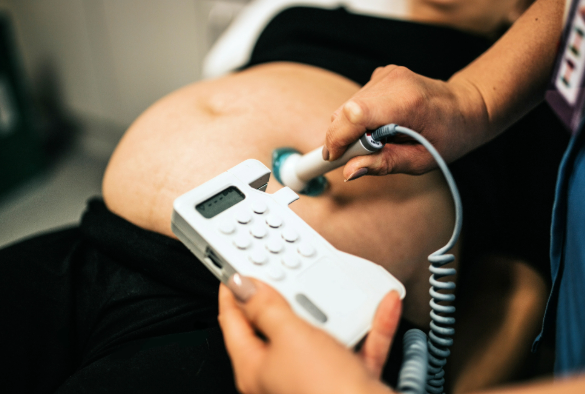Two-thirds of obstetricians and gynaecologists have encountered a traumatic work-related event during their career,[1] which can trigger post-traumatic stress symptoms (PTSS) and if unaddressed can decline into post-traumatic stress disorder (PTSD).
Health professions affected by PTSS may experience flashbacks, intrusive thoughts, feeling ‘on edge’ and under threat, as well as anger or guilt. The impacts can also lead to exhaustion and lower job satisfaction, with an alarming 12% of obstetrics and gynaecology doctors leaving the profession in the UK within three years of completing training, the highest level of any medical specialty.[2]
Geeta Kumar, the Royal College of Obstetricians and Gynaecologists (RCOG) Vice President for Clinical Quality, said: “The significant impact of traumatic events experienced by women and families continues to be a critical focus for the College. It is essential that the vulnerability of staff working in maternity and gynaecology services is also recognised.
“The RCOG commissioned this Good Practice Paper to provide a comprehensive framework to prevent, and provide early intervention for work-related PTSS. This will not only benefit health care professionals in our specialty but, crucially, enhance the safety and experience of women too.”
Researchers and clinicians from the University of Liverpool, University of Nottingham and the University of the West of England led the development of this important new publication.
Co-author of the paper, Professor Pauline Slade, University of Liverpool, said: “It is clear that the reported levels of PTSD are highly detrimental for individual health professionals, for patient care, and more broadly at specialty and organisational level. We urge NHS trusts, health boards and policy makers to consider this Good Practice Paper and embed it within staff welfare practices. We must change the culture of healthcare settings in order to see positive change.”
To read Good Practice Paper No. 19 ‘Prevention and Treatment of Work-Related Post-Traumatic Stress Symptoms in the Maternity and Gynaecology Workforce’ click here.
The guidance includes:
- Facilitating a supportive culture: Exposure to traumatic events in maternity and acute gynaecology settings should now be recognised workplace hazards for which employers hold a duty of care to their workforce. A workplace culture should be developed in which some distress in response is viewed as human, not a weakness.
- Universal training on prevention of PTSS symptoms: Workforce training programmes across all levels of seniority should incorporate awareness, knowledge and confidence in dealing with the normal emotional response to trauma, thereby enhancing basic self-care. Training should also incorporate a culture of reflection, self-forgiveness and moving on after the index event.
- Routine provision of a system of support after both patient safety incidents and self-labelled traumatic workplace events: Each Trust/organisation and Health Board providing O&G services should develop a non-stigmatising system of support appropriate to the situation.
- Easy access to trauma-focussed psychological intervention: For staff members who find that support from colleagues is not sufficient to prevent the development of symptoms indicative of PTSD, rapid confidential access to a course of trauma-focused psychological assessment and intervention should be provided.
- Formal evaluation of programmes to support staff: Programmes of support for staff should be subject to formal evaluation. This would assist understanding of what is good practice in terms of support delivered and resource required.
The paper, ‘Prevention and Treatment of Work-Related Post-Traumatic Stress Symptoms in the Maternity and Gynaecology Workforce’ was authored by Dr Laura Goodfellow, NIHR Academic Clinical Lecturer in the Centre for Women’s Health Research, Professor Pauline Slade, Clinical Psychology and Consultant Clinical Psychologist, and Andrew Weeks, Professor of International Maternal Health from the University of Liverpool, Professor Helen Spiby, Professor of Midwifery at the University of Nottingham and Dr Kayleigh Sheen, Senior Lecturer in Psychology at the University of West of England who developed the guidelines on behalf of the RCOG.
[1] Slade P, Balling K, Sheen K, Goodfellow L, Rymer J, Spiby H, et al. Work-related post-traumatic stress symptoms in obstetricians and gynaecologists: findings from INDIGO, a mixed-methods study with a cross-sectional survey and in-depth interviews. BJOG. 2020;127(5):600–8.
[2]RCOG. RCOG Workforce Report 2022. [https://www.rcog.org.uk/media/wuobyggr/rcog-workforce-report-2022.pdf]. Accessed 03 July 2024.
